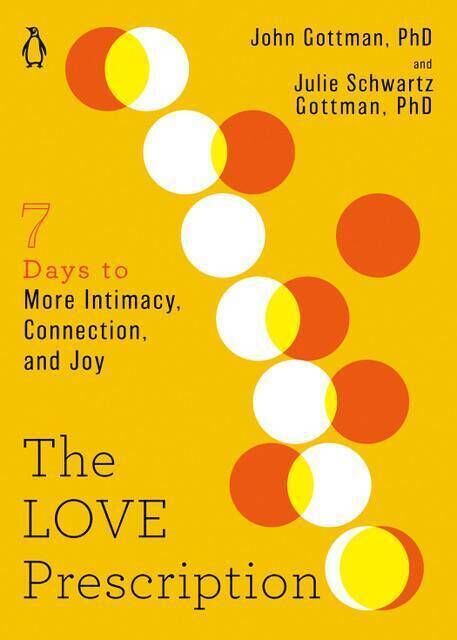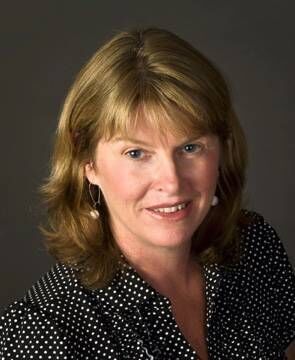How to keep your relationship on track over Stressmas

'A lot of people don’t ask for what they want or talk about how they would like Christmas to go'
’Tis the season to be jolly. But the festive season can also be a flashpoint for conflict as simmering tensions come up against unrealistic expectations to have the ‘perfect’ Christmas.
The first post-lockdown celebration brings extra pressures as people attempt to make up for lost time with family, friends, and loved ones. For those in relationships, who have spent the last few years in close quarters, adding Christmas preparations into the mix could lead to bubbling resentments boiling over.
A survey of more than 2,000 adults by the Tavistock Relationships charity in Britain late last year found that four in 10 felt the pandemic had caused additional stress for their children and wider family, while couples with children were nearly twice as likely as the national average to consider splitting up as a result of lockdown and the pandemic — 14% v 8%.
The answer to navigating such a minefield may lie in the latest book from US psychologists Dr John and Dr Julie Gottman, highly respected experts in the field of couples therapy.
They have written numerous bestsellers on how to build and maintain a successful relationship and through the Gottman Institute, they have undertaken 50 years of research with thousands of couples.
In , they argue that it’s the little things that count — and outline how small doses of attention and affection, every day, even for just a week, can have a positive impact on a relationship.

Sinéad Smyth is a certified Gottman therapist and master trainer in the Gottman Method. Originally from Dundalk, Co Louth, she is based in California, but regularly facilitates Gottman training for therapists in Ireland.
She has seen a huge increase in couples seeking therapy post-lockdown.
“I’ve been in practice for over 20 years and I have never seen anything like it. At the start of this year, where we might get four or five or six referrals a week, we were getting 12 to 20 a day for couples therapy.
“I think people held it together, that’s what happens, but the level of distress and how far gone people were was so much worse. There was too much togetherness, worry and dread, along with the homeschooling, it was very tough on relationships,” she says.
In terms of preparing for Christmas, she says it is important for couples to clearly communicate their needs and expectations.
“The problem I see with couples is that their expectations are not made explicit. A lot of people don’t ask for what they want or talk about how they would like Christmas to go.
"If people don’t say, ‘This is what I’m looking forward to’, ‘This is what I don’t want to happen’, or ‘Here’s how I would like it to go’, then it’s a recipe for disappointment, fights, and miscommunication. There’s a lot of that - I see it every year.”
Smyth also sees how tradition and a certain way of doing things can be a burden. She says that post-Covid she has seen a lot of people who may be dealing with loss and trauma or who don’t want to go back to the way things were.
“It’s difficult if you feel like you have to meet the expectation that everything is going to be amazing, especially for people that might have had somebody that passed away during the year.”
In regards to gender roles and who does what at Christmas, women often carry the load of what is termed ‘emotional labour’, undertaking tasks such as sending Christmas cards, selecting and wrapping gifts, and keeping on top of the family calendar.
“That is just baked into society and it can be really frustrating for women,” says Smyth.
She suggests allotting tasks and getting it all down on paper.

“Put down everything that needs to happen to make Christmas go well — the cards, the presents, the shopping, the visiting, all of that. What do you want to do? What does he want to do? What do you need to do together? Get it down in advance.
"Again, it’s about having intentional conversations. I think most of us don’t do that. We just go into it, we’re expected to do it and then we’re resentful as hell.”
Key to the Gottman approach is the theory that love is an action. As outlines: “It’s something you do, not something that just happens to you. And you need to give — and get — a daily dose to maintain a healthy, thriving relationship.”
There is a school of thought in couples therapy that airing grievances is the way to go, but this is not the Gottman approach.
While it acknowledges that conflict is a part of any close relationship, when a relationship is in trouble, their research shows that a major conflict is the last place you want to start.

As they write: “We know from the lab that the best relationships aren’t built on partners mostly telling each other what’s wrong. They’re built on partners mostly telling each other what’s right.”
Smyth points out the importance of what the Gottman approach terms ‘turning toward’ one’s partner — giving a positive or affirmative response, acknowledging the other and engaging with their attempt to connect.
Turning away is either actively ignoring or just not noticing their partner’s attempt to connect while turning against is responding irritably or angrily to actively shut their partner’s attempt to connect.
Showing ‘fondness and admiration' for one’s partner is also vital, as is backed up by research carried out by the ‘love lab’ at the Gottman Institute.
Data from 3,000 couples, some of whom were followed for up to two decades, showed that couples who remained happily together were easily able to name specific qualities they love and appreciate about their partner.
Even if one person in the relationship is reluctant to follow the Gottman approach or the tenets of , it can still make a difference if the other person implements it, says Smyth.
“I have seen how one person can make a difference,” says Smyth.
“If your husband is telling a story you’ve heard before and you say, ‘That was really funny’, you’re going to get a different response from your husband than if you say, ‘Jesus, are you telling the same joke again?’, and that generates its own momentum.
“Everybody likes to be complimented or acknowledged for their positive contributions. I do the Christmas cards in my house but my husband always makes a point of saying, ‘I really appreciate you doing that’, as he hates doing it.”
Smyth says that from her own experience, Irish people could learn from the more direct approach of Americans in general.
“So much of what we see in couples therapy is people who never say what they need and think the partner should read their minds.
"The partners don’t, they get disappointed, they don’t say it and they’ve got this layer of resentment. And then when they have a fight about the cup not being put into the dishwasher, the whole grudge drawer gets opened, and everything comes out.
“We all want things and we should ask for them — it doesn’t mean that you’re being demanding or throwing your weight around.”
- Universal factors make or break a relationship, according to the authors of The Love Prescription.
- First, a couple needs to stay curious about each other. Successful couples take the time to make and expand their ‘love maps’—their knowledge of each other’s inner worlds. That means not only asking questions but also asking the right kind of questions.
- Second, the couple needs to share fondness and admiration. That means, among other things, seeing and appreciating the good things your partner does, finding and focusing on the things you admire about them, and expressing these things out loud or with touch.
- Third, the couple turns toward each other instead of turning away. That means they make and respond to what the Gottmans refer to as “bids for connection”. Bids can range from little things, like calling each other’s names, to big things, like asking for deeper needs to be met. Successful couples are savvy enough to notice when their partner is making a bid, and they drop what they’re doing, if necessary, to engage.










